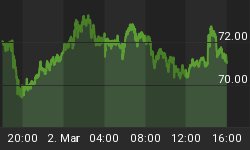On Friday, March 9, the International Swaps and Derivatives Association declared that the final Greek Sovereign Debt arrangements had resulted in a Greek debt default. This was for the purposes of determining whether those counter-parties who had insured Greek debt through Credit Default Swaps ('CDS', a form of Derivative) could be called upon to pay out on that insurance.
An article yesterday concluded that, as a result of market activity on Monday, March 12, the financial markets are treating the call on the related CDS's as a non-event, and that this "makes the CDS market seem a lot safer than it was just a few years ago".
The article also reports that the CDS market is less opaque (more transparent) than it has been in the past. It notes that about 90% of existing CDS's are collateralized, and that many banks that deal in CDS's now publicly report their positions.
I suggest that you make a point of reading this article. This will give you further background, but will also allow you to determine for yourself whether or not it influences your views as to the risks associated with, what are estimated by some, to be in the order of U.S.$32 trillion in CDS's outstanding (equal to about 50% of the World's estimated current annual GDP).
My own view is that it is 'early days', and financial market activity over the course of Monday should not be taken as a reading of much of anything. I also believe that my views that bank book equities likely are overstated as a result of the post-2008 accounting changes to the mark-to-market rules may play directly into the 'collateralization issue' mentioned in the article.
Certainly I would not conclude that the financial markets were 'out of the woods' with respect to Credit Default Swaps going forward - if for no reason other than that the numbers are too large on a relative basis for that to be the case in the face of existing country-specific Sovereign Debt / GDP balances.
While it may prove not to be a significant 'slip of the finger', I inadvertently typed 'Sovereign Bet' instead of 'Sovereign Debt' in the last sentence. I did, of course, correct it.
I believe outstanding CDS's may prove to be important to the ongoing well-being of the financial markets. I suggest you review this commentary with your financial advisor and determine his/her view on CDS's, the quantum outstanding, and the risk to the financial markets your advisor thinks attaches to them.
Read: Credit-Default Sway Time Bomb Failed to Go Off Over Greece: View. Source: Bloomberg, March 12. Reading time: 4 minutes.
















